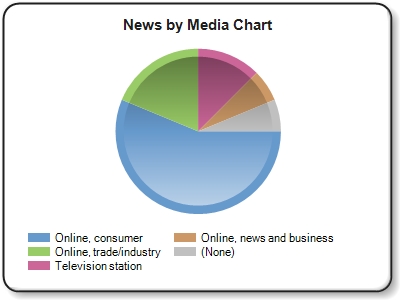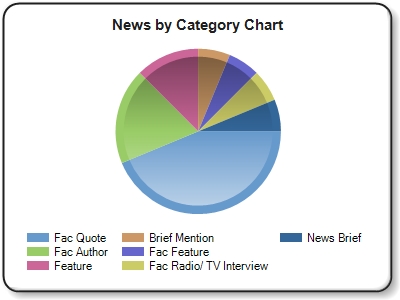Top Story
| American University, Julian Castro Discuss Diversity and Inclusion on College Campuses |
| American University hosted Julian Castro and Alma Clayton-Pederson in conversation with AU President Sylvia Burwell for a discussion about inclusive excellence on college campuses. WUSA-9 covered the event, and spoke to Fanta Aw, vice president of campus life, about the university's efforts. Aw said, “It's not about forgetting or even excusing how we got here but learning from it.” (2/8) |
Additional Features
| Are We Giving Millennials Enough of a Reason to Stay? |
| The Washington Post featured data from the Kogod Millennial Index in a story that looked at D.C.'s ability to attract millennials. The article states that “our largest workforce demographic is motivated more by financial security than by attachment to people and surroundings, at a time when other regions may have cheaper living costs and offer comparable (or better) economic opportunities.” NBC4-WRC, Wired, WTOP-FM and Washington Business Journal also ran stories about the Kogod Millennial Index. (2/5, 2/6, 2/2) |
| American University Wants Us To Laugh Together |
| The Washington Post highlighted School of Communication Executive-in-Residence Caty Borum Chattoo and Comedian-in-Residence Bethany Hall in a story about The Laughter Effect, a research initiative within the Center for Media & Social Impact. Hall said she hopes to use her role “to ‘make people laugh with me who aren't socially on the same page that I am.” Borum Chattoo said the initiative “was designed to ‘dig into how comedy works when we think about social and civic issues.” (2/4) |
| The Festival Where Being a Female Playwright Isn't a Rarity |
| Caleen Sinnette Jennings, professor of theater, appeared on PBS NewsHour to discuss D.C.'s Women's Voices Theater Festival. Jennings said, “What's important is the fact that the story is worth telling, and the story is worth seeing. I think women of my generation wrestled with that thought. It's good to see younger women coming along and saying, ‘Why was this even a question?'” (2/5) |
Faculty Authors
| Could Obama Have Stopped the Election Hack? |
| Joshua Rovner, associate professor in the School of International Service, wrote an opinion article for War on the Rocks about whether President Obama could have stopped Russian involvement in the 2016 elections. Rovner wrote, “Going public was unlikely to change Russian behavior… The problem went beyond deterring future Russian mischief. The administration also had to compel Russia to stop the existing campaign.” (2/6) |
| The US Can't Afford to Reduce Global Public Health Funding |
| School of International Service Professor Daniel Gerstein wrote an opinion article for The Hill about the importance of public health funding. Gerstein wrote, “Without renewed funding, the long-term outlook could include weakened global disease surveillance and response systems.” (2/7) |
| Members of Congress Respond To More Than Money – Sometimes |
| Jan Leighley, professor of public affairs, co-authored an article for The Conversation about the effect citizen activism has on the actions of elected officials. Leighley and her co-author wrote, “Despite the ubiquitous role of money in campaigns, elections and policymaking, some citizens clearly still believe in the power of protest.” (2/9) |
Expertise
| In This Classroom, Every Student's Name Is 'Judge' |
| Washington College of Law Professor Ira Robbins spoke to the Associated Press about a training program for newly appointed federal judges. Robbins said that the judges who take part in the program take more notes than his students because “they're going back to their offices and they have to use this.” The story ran in over 160 outlets, including The New York Times and The San Francisco Chronicle. (2/7) |
| Why Schools Fail to Teach Slavery's 'Hard History' |
| Ibram X. Kendi, founding director of the Antiracist Research and Policy Center, talked with NPR about issues American educators face when teaching students about slavery. Kendi said, “Saying that the deadliest conflict in American history was fought over an effort to keep people enslaved conflicts with students' sense of the grandness of America… and the grandness of themselves as Americans.” The story ran in over 75 NPR affiliate stations. (2/4) |
| Donald Trump's Unrelenting War with the NFL |
| Theresa Runstedtler, chair of the Critical Race, Gender and Cultural Studies department, spoke with CNN about President Trump's rocky relationship with the NFL. Runstedtler said that Trump's tweets and comments about NFL players “just shone a spotlight on the debate and gave it a kind of national profile that it might not have had.” (2/5) |
| Why Public Media Has a Sexual-Harassment Problem |
| Julie Drizin, executive director of Current, a nonprofit publication housed in the School of Communication, spoke to the Atlantic about the string of sexual harassment allegations made against public media figures. Drizin said, “A lot of corporations invest a lot more in HR. I think that's one of the things that separates public media from other kinds of media.” (2/2) |
| Is 'Great-Power Competition' Worth Billions in Nuke Spending? |
| David Barno, distinguished practitioner-in-residence in the School of International Service, spoke to U.S. News and World Report about a Pentagon strategy that suggests a ‘great-power competition' between the U.S., China and Russia. Barno said the strategy “fits everybody's comfort zone- the military's comfort zone… the defense industry's comfort zone, the traditional wartime thinkers.” (2/2) |
| Guns From America Snagged on Their Way to Iraq |
| Joe Young, associate professor in the School of International Service and the School of Public Affairs, spoke to Newsweek about the illegal sale of American guns to Kurdish fighters. Young said, “Historically, [the sale of arms] is really common, for instance during the troubles in the U.K., Irish-American citizens sent weapons.” (2/2) |
| Wall Street Plunge |
| Kogod School of Business Assistant Professor Mark Ma appeared on NBC4-WRC to discuss the stock market plunge. Ma said, “Almost everyone has gained from the capital market over the last year, and now they are becoming really risk averse and they want to lock in their profit.” (2/5) |
|



